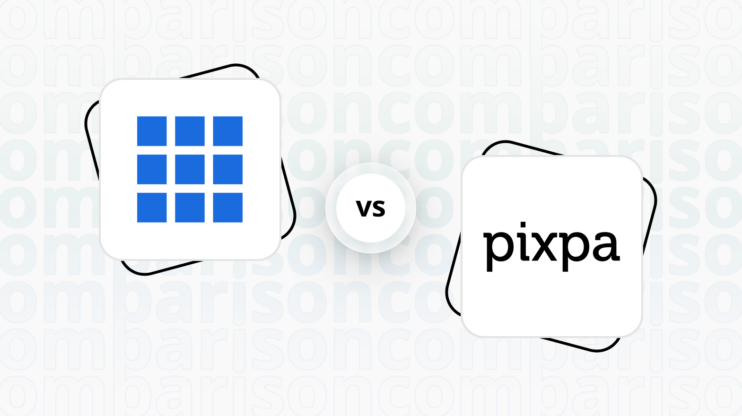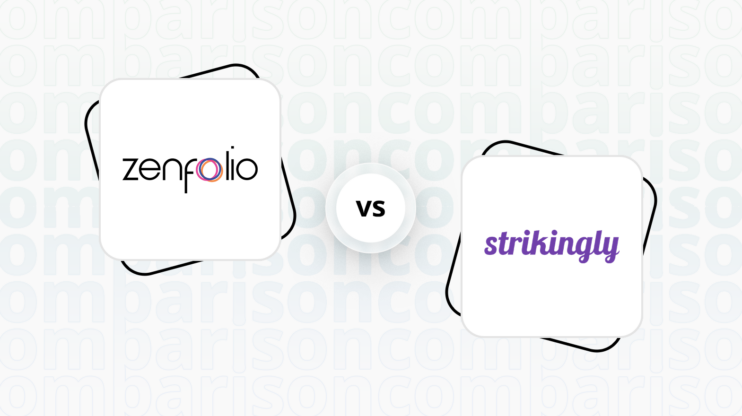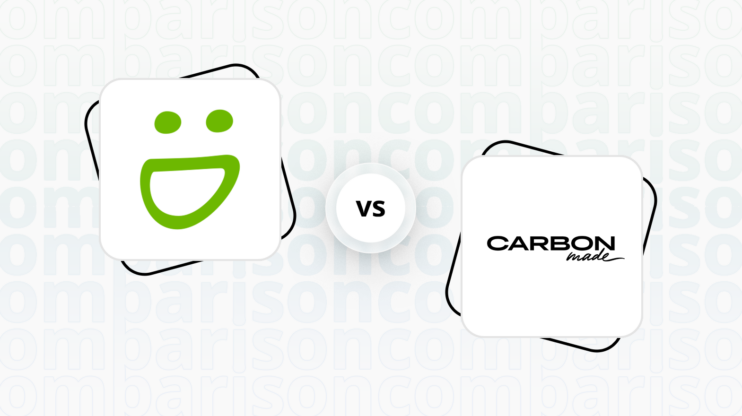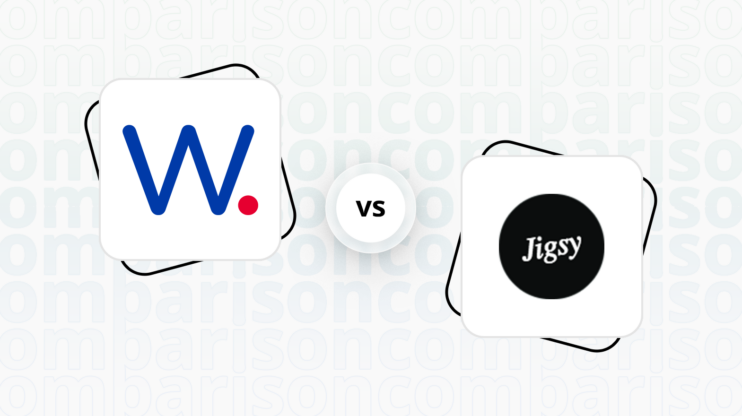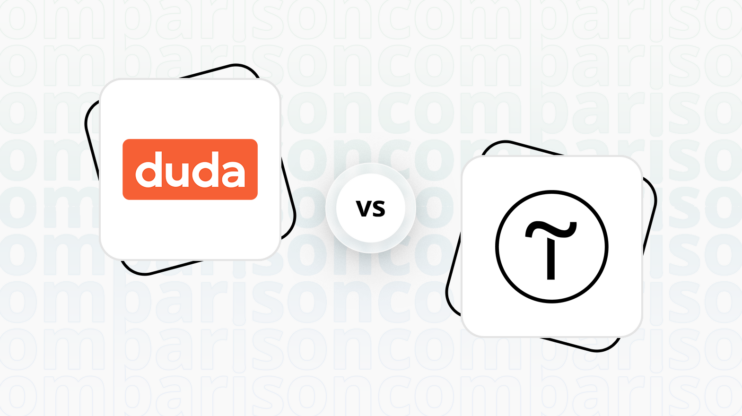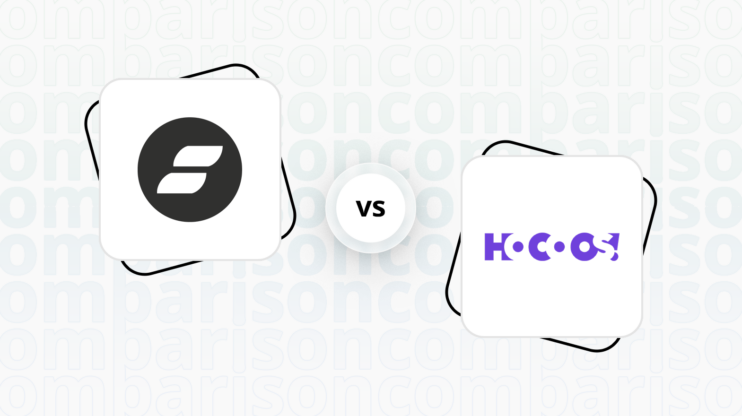Final verdict
Adobe Commerce(ex Magento) and Zoho Sites both offer unique strengths, catering to different user needs and preferences.
-
Adobe Commerce(ex Magento) (Overall Grade: 6.9/10)
is a versatile and powerful platform ideal for businesses looking for extensive ecommerce capabilities and scalability. It excels in providing advanced marketing tools, robust security, and a wide range of plugins and integrations. However, it comes with a steeper learning curve and higher costs, making it more suitable for larger businesses with complex needs and the resources to manage a sophisticated ecommerce platform. -
Zoho Sites (Overall Grade: 7.6/10)
stands out for its user-friendly interface, affordability, and ease of use, making it an excellent choice for small businesses, creatives, and beginners. It offers a wide variety of customizable templates, seamless integration with other Zoho products, and solid performance in website speed optimization. While it may not match Adobe Commerce(ex Magento) in terms of advanced ecommerce features and scalability, Zoho Sites provides a cost-effective and straightforward solution for users looking to quickly and easily build and manage their websites.

|

|
|
|---|---|---|
|
Design functionalities & templates |
6.7 |
7.4 |
|
Ease of use |
5.4 |
7.0 |
|
Ecommerce |
9.4 |
7.4 |
|
Website Editors |
7.8 |
7.5 |
|
Product testing options |
3.9 |
8.8 |
|
Price |
5.8 |
8.6 |
|
Hosting quality |
8.1 |
8.0 |
|
Website speed optimization |
6.6 |
7.1 |
|
Plugins/extensions and integrations |
9.1 |
7.3 |
|
Marketing features |
8.1 |
7.6 |
|
Customer support |
8.3 |
8.3 |
|
Website security |
8.4 |
8.1 |
|
AI capabilities |
7.7 |
7.5 |
|
User Management |
8.0 |
7.3 |
Best for ecommerce
 9.4
9.4
 7.4
7.4
Verdict
: Adobe Commerce(ex Magento) is a powerhouse for ecommerce, offering extensive features and scalability, while Zoho Sites is more suited for simpler, smaller-scale online stores.
-
Adobe Commerce(ex Magento)
: This platform is ideal for businesses looking for a robust and scalable ecommerce solution. It offers advanced features like AI-driven personalization, multi-channel selling, and comprehensive customization options. Adobe Commerce is perfect for both B2B and B2C businesses that require a high level of functionality and integration with other Adobe tools. -
Zoho Sites
: While primarily a website builder, Zoho Sites integrates with Zoho Commerce to provide ecommerce capabilities. It is user-friendly and suitable for small to medium-sized businesses. However, it lacks the advanced features and scalability of Adobe Commerce, making it less ideal for larger or rapidly growing businesses.
Best for informational & business websites
 7.4
7.4
 7.9
7.9
Verdict
: Zoho Sites is the preferred choice for creating informational and business websites due to its user-friendly interface and extensive template options. Adobe Commerce(ex Magento) is more suited for complex, customizable ecommerce solutions.
-
Adobe Commerce(ex Magento)
: Adobe Commerce, formerly known as Magento, is a robust platform designed for ecommerce but can be adapted for informational websites. It offers extensive customization options and developer tools, making it ideal for businesses that need a highly tailored solution. However, its complexity and steeper learning curve may not be suitable for beginners or those looking for a straightforward website building experience. -
Zoho Sites
: Zoho Sites excels in providing an easy-to-use platform with a wide range of customizable templates, making it perfect for creating visually appealing informational websites. Its intuitive visual editor and responsive design options ensure that users can quickly build and manage their sites without any coding knowledge. For those prioritizing ease of use and design flexibility, Zoho Sites is the clear winner in the Adobe Commerce(ex Magento) vs Zoho Sites comparison.
Detailed comparison
Design functionalities & templates
Design FunctionalitiesRepresents how well each platform allows for creative design and customization of websites.Score Components:
- Template Variety (30%): Range and quality of design templates.
- Customization (30%): Flexibility and options for design alterations.
- User Interface (20%): Ease and intuitiveness of the design process.
- Responsiveness (10%): Adaptability to different devices and screen sizes.
- Innovation (10%): Unique design features and tools.
 6.7
6.7
 7.4
7.4
🏆
Winner: Zoho Sites.
Zoho Sites offers a more user-friendly platform with a larger variety of templates and design options, making it the preferred choice for users who want more creative control.
Adobe Commerce (ex Magento) prioritizes flexibility over pre-built templates. While it offers a limited selection of base themes, users can access third-party themes for customization. Theme options are highly adaptable, allowing changes to layouts, colors, fonts, and the creation of custom page layouts. The platform provides a powerful theme framework for comprehensive control, including frontend editing for basic adjustments. Experienced developers can employ custom code (HTML, CSS, Javascript) for unique designs and advanced functionalities.
Adobe Commerceex Magento Themes
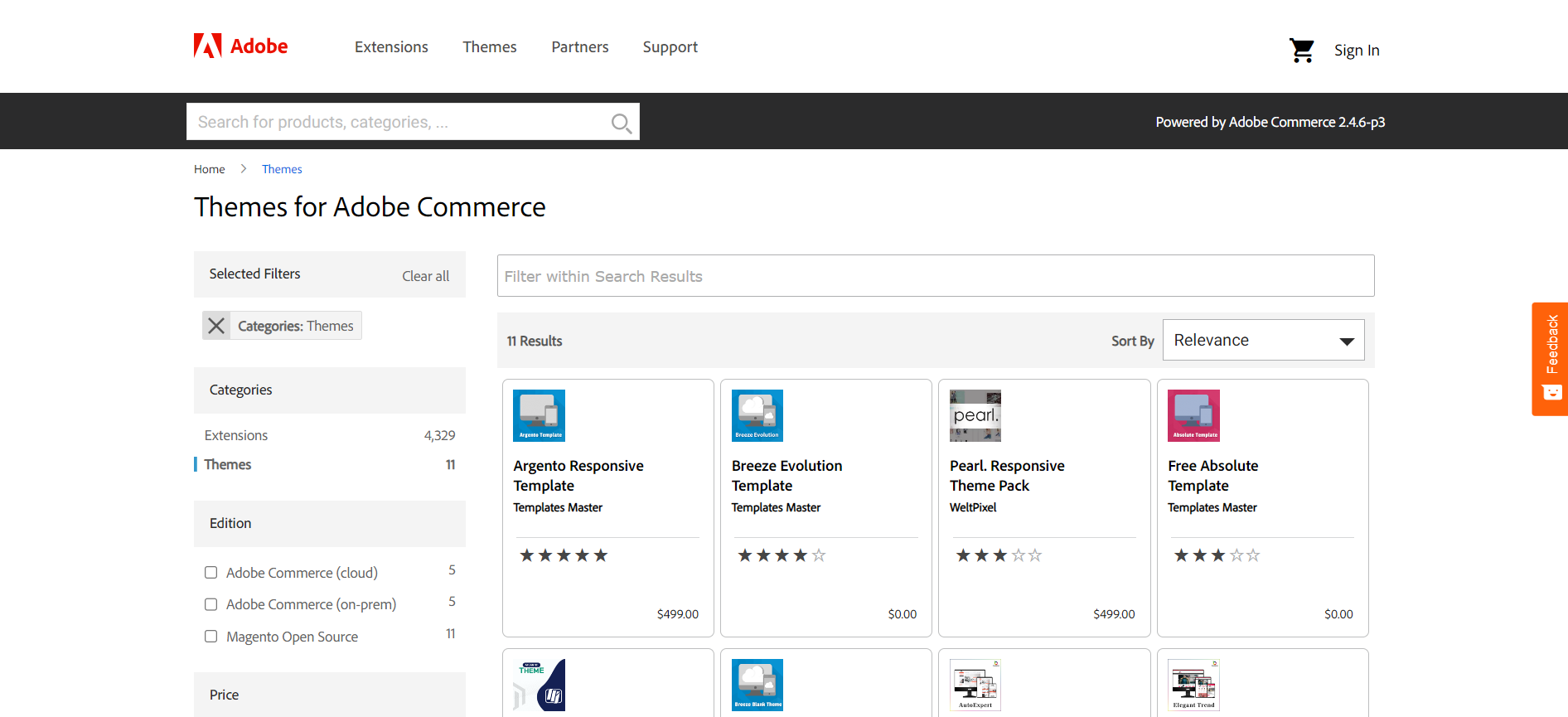
On the other hand, Zoho Sites offers a diverse collection of over 150 templates, thoughtfully categorized into industries like Restaurants, Architecture, Health, and more. Each template provides a pre-designed layout with responsive design for various screen sizes. Customization options include visual elements such as colors, fonts, and images, as well as the ability to modify layouts and content using the visual editor. For advanced users on the Advanced Plan, there’s the option to leverage HTML and CSS for deeper customization.
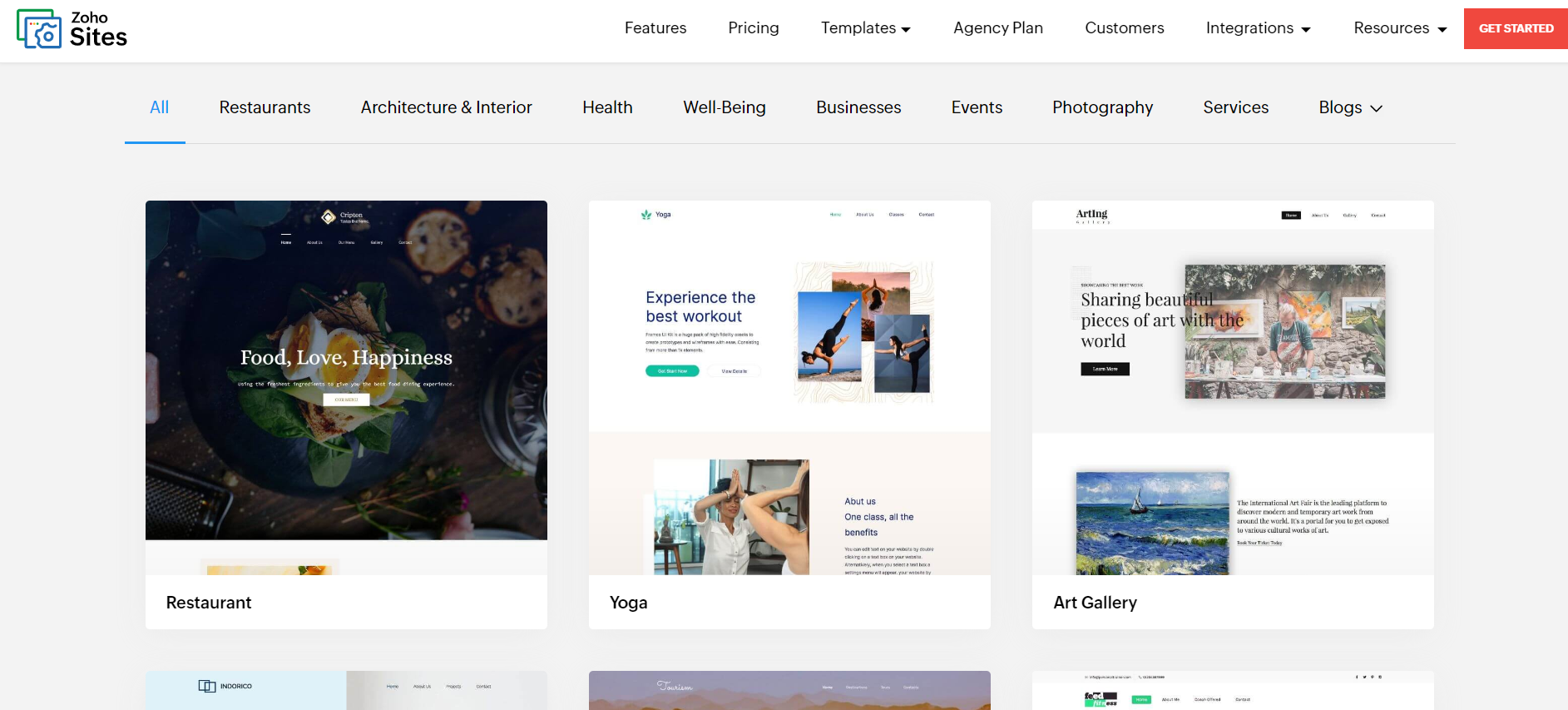

Get a head start on website creation with AI
Create a custom website tailored to your business needs 10X faster with 10Web AI Website Builder!
Ease of use
Ease of useReflects the platform’s overall user-friendliness.Score
Components:
- Learning curve (40%): Quickness and ease of getting started.
- Interface design (30%): Simplicity and intuitiveness of layout.
- User guidance (20%): Quality of tutorials and support.
- Flexibility (10%): Adaptability to various user skills.
 5.4
5.4
 7.0
7.0
🏆 Winner: Zoho Sites
. Scoring a solid 7.0, Zoho Sites stands out for its user-friendly interface, making it exceptionally easy for beginners to create and manage their websites. Adobe Commerce(ex Magento), with a score of 5.4, offers a robust platform but with a steeper learning curve, especially for those new to ecommerce. If ease of use is a priority, Zoho Sites is the clear winner in this category.
Learning Resources
Both Adobe Commerce(ex Magento) and Zoho Sites offer a comprehensive array of learning resources, including videos, tutorials, and courses. These resources are designed for various user roles and proficiency levels, ensuring learners can access the right material for their needs.
For ecommerce
EcommerceMeasures the platform’s effectiveness in supporting online business activities.Score Components:
- Ecommerce themes and templates (20%): Variety and design of templates.
- Product management (25%): Ease of managing and organizing products.
- Payment options (25%): Variety and convenience of payment methods.
- Ecommerce features (20%): Features for managing an ecommerce store.
- Integration (10%): Compatibility with external e-commerce tools and services.
 9.4
9.4
 7.4
7.4
Adobe Commerce (ex Magento) is a robust ecommerce platform suitable for both B2B and B2C businesses. It offers a comprehensive set of features for online businesses, including product and inventory management, efficient order processing, customer account management, targeted marketing capabilities, diverse payment processing options, robust security measures, and scalability to accommodate business growth.
On the other hand, Zoho Sites, while primarily a website builder, integrates seamlessly with Zoho Commerce, a dedicated platform designed for online store management. This allows users to create a website with Zoho Sites and easily incorporate ecommerce functionality through Zoho Commerce, providing clarity, flexibility, and scalability for businesses of various sizes.

|

|
|
|---|---|---|
|
Ecommerce themes and templates |
7.5 |
6.5 |
|
Product page customization |
9.0 |
7.0 |
|
Payment processing and commissions |
7.8 |
6.8 |
|
POS capabilities |
7.0 |
5.5 |
|
Payment gateways |
8.5 |
7.2 |
|
Product numbers |
7.5 |
6.0 |
|
Additional ecommerce features |
8.0 |
7.3 |
Adobe Commerce (ex Magento) ecommerce features:
- Product and Inventory Management
- Order Management
- Customer Management
- Marketing and Promotions
- Payment Processing
- Multi-Channel Commerce
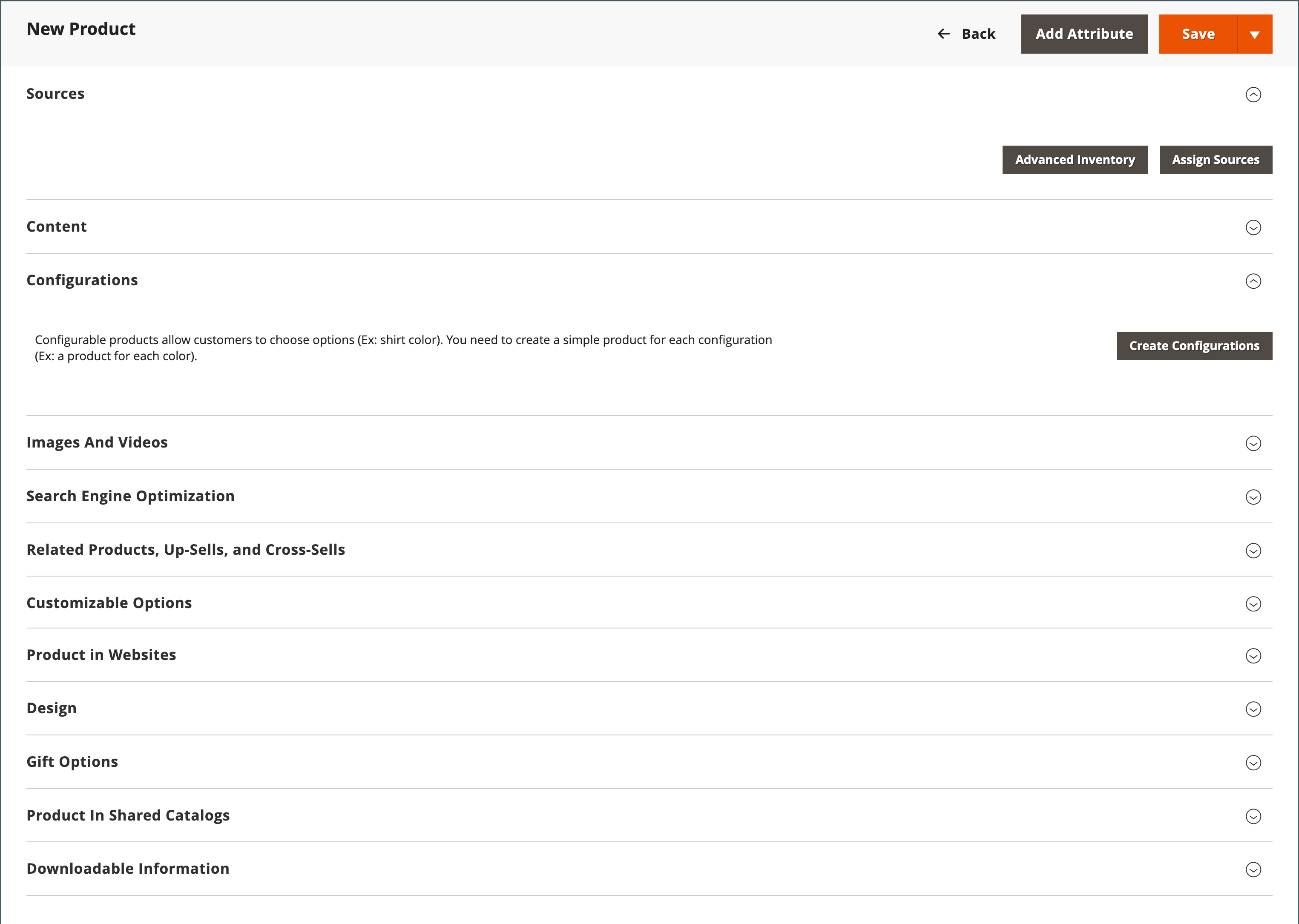
Zoho Sites ecommerce features:
- Product and Inventory management
- Order management
- Payment Processing
- Marketing and Promotions
- SEO and Analytics
- Security
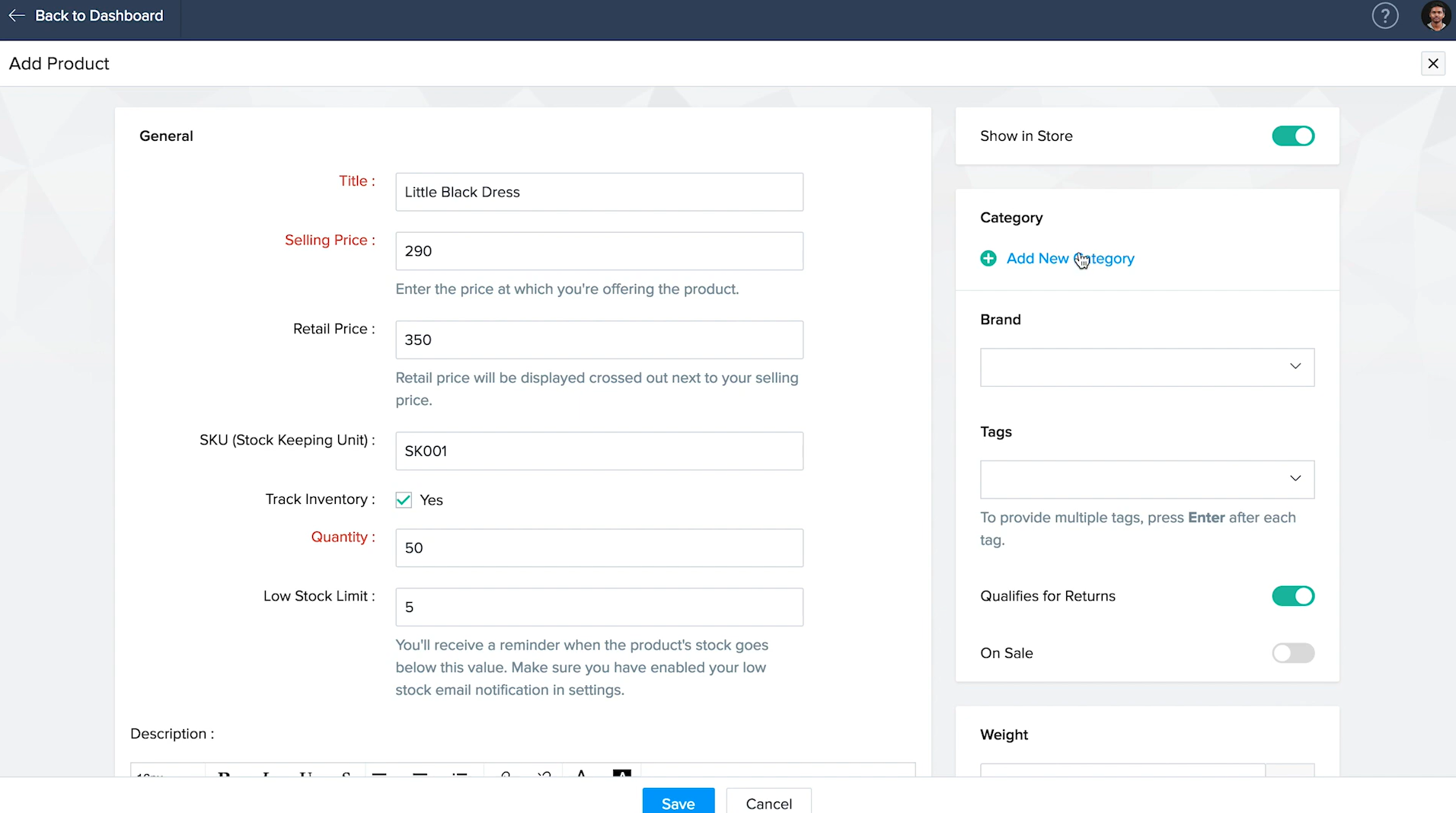
Ecommerce themes & templates
Adobe Commerce, powered by Magento, offers a comprehensive ecosystem for ecommerce themes and templates, enabling businesses to customize their online stores to meet specific branding and functionality requirements. Themes in Adobe Commerce serve as the visual and structural framework for online stores, incorporating layout files, template files, translation files, and skins to define the look and feel.
Zoho Sites offers a range of eCommerce website templates and themes designed to cater to various industries and business needs. These templates are customizable, allowing businesses to tailor their online stores to their brand and product offerings. Zoho Commerce, in particular, provides beautiful and highly customizable eCommerce store themes, aiming to enhance the online shopping experience.
Product page customization
Adobe Commerce offers extensive customization options for product pages, enabling businesses to enhance the user experience and tailor product displays to their specific needs. This includes customizing layouts, product attributes, images and media, dynamic content like related products and reviews, and custom product options such as configurable and bundled products.
Zoho offers extensive product page customization options, allowing users to tailor the display of their products. This includes features like image galleries, sliders, and video integration, enabling businesses to present their products in a visually appealing manner. Additionally, Zoho facilitates the configuration of product variants like size and color options, as well as efficient inventory management directly from the product pages.
Payment processing
Adobe Commerce offers integrated payment solutions and commission management for seamless online transactions, alongside POS integration for omnichannel retail experiences. It supports a wide array of payment gateways, ensuring flexible and secure payment options for customers.
Zoho Sites, in conjunction with Zoho Commerce, offers robust payment processing capabilities and supports integration with multiple payment gateways like PayPal, Stripe, and Square, facilitating secure online transactions. While direct POS system integration and commission management might require leveraging additional Zoho tools or custom solutions, the Zoho ecosystem provides a comprehensive suite for businesses to manage both online and in-store sales efficiently. This integration ensures flexibility and security for businesses aiming to provide a seamless shopping experience across multiple channels.
Website Editors
Website EditorsEvaluates the platforms’ website building and editing capabilities.Score Components:
- Customization tools (40%): Range and power of editing features.
- Editor usability (30%): User experience within the editor.
- Design flexibility (20%): Freedom in layout and design changes.
- Update and maintenance ease (10%): Simplicity of updating and maintaining the site.
 7.8
7.8
 7.5
7.5
🏆
Winner: Adobe Commerce(ex Magento)
. Adobe Commerce(ex Magento), with a score of 7.8, offers a user-friendly website editor with its Page Builder tool, designed for ease of use through drag-and-drop capabilities, allowing for simple management and customization of eCommerce sites without extensive developer involvement. It provides a flexible and intuitive platform for users to effortlessly design, update, and maintain their online stores, supported by a variety of design options and themes for tailored branding and promotional activities.
Zoho Sites, scoring 7.5, offers a user-friendly website editor with an intuitive, drag-and-drop interface that makes website design straightforward and accessible, even for those with no technical background. The visual editor further simplifies the customization process, enabling users to tweak the look and feel of their website sections without any coding knowledge. This approach to website building emphasizes simplicity, allowing for the quick and easy creation of professional websites.
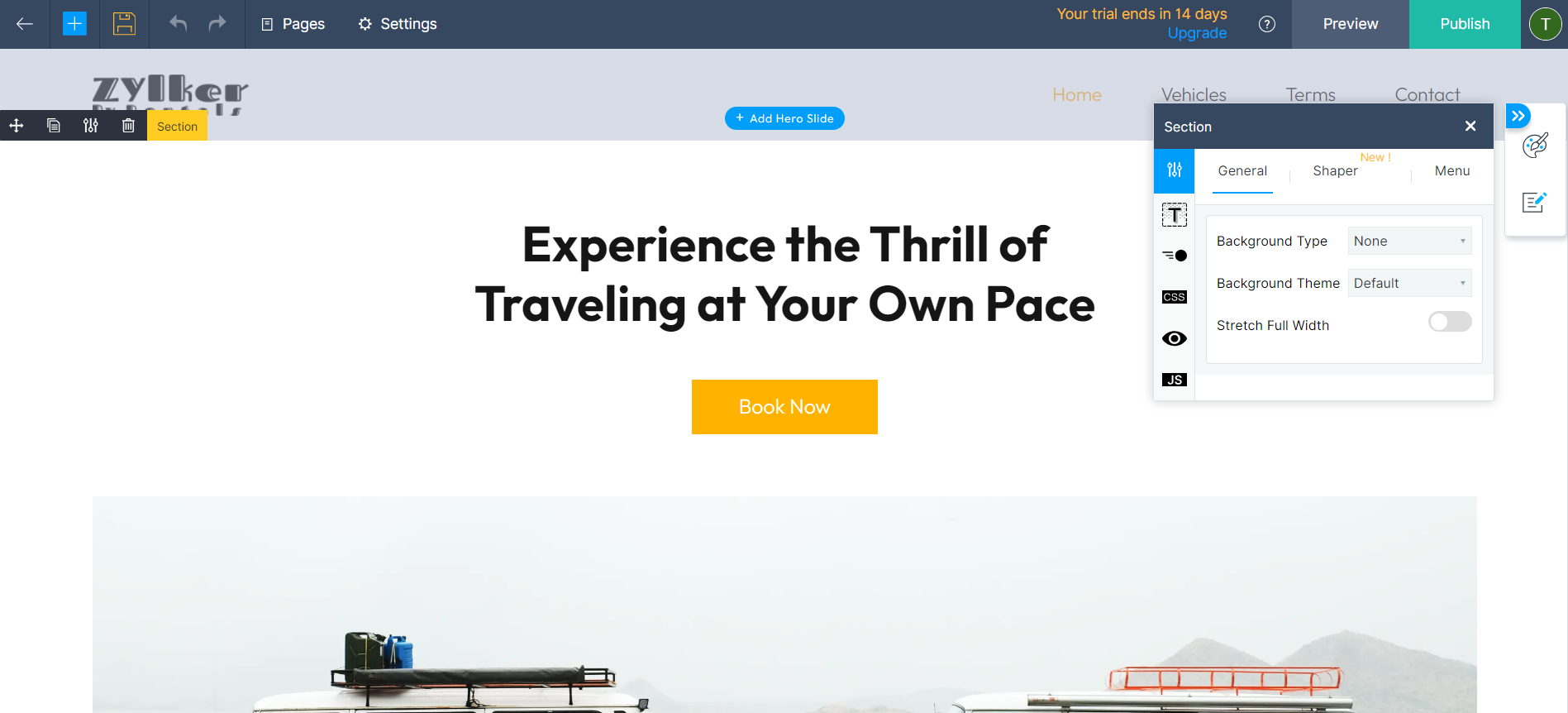
Mobile editor/app
 0
0
 5.5
5.5
🏆
Winner: Zoho Sites
. Neither Adobe Commerce (ex Magento) nor Zoho Sites offer a dedicated mobile app for website editing. However, Zoho Sites does allow users to edit the visual aspects of the mobile version of their website, such as font size, color, background, and shadow. Unfortunately, content changes cannot be made through the mobile interface. Despite these limitations, Zoho Sites still offers more mobile editing capabilities than Adobe Commerce, making it the winner in this category.
Product testing options
Product Testing OptionsAssesses the options for trying out platform features before commitment.Score Components:
- Trial quality (40%): Extent and usefulness of the trial or free version.
- Feature accessibility (30%): How many features are available to test.
- Trial duration (20%): Length of the trial period.
- Ease of transition (10%): Smoothness of moving from trial to paid plans.
 3.9
3.9
 8.8
8.8
Overall Result
:
Zoho Sites Wins
. Zoho Sites scores 8.8, significantly higher than Adobe Commerce(ex Magento) which scores 3.9. Zoho Sites offers a free version and a 15-day free trial with access to all features of each plan. Adobe Commerce(ex Magento), on the other hand, does not offer a free or trial version, but it is possible to test premium features by requesting a demo version.

|

|
|
|---|---|---|
|
Free Plan |
No |
Yes |
|
Trial Duration |
No |
15 days |
|
Testing Premium Features |
By requesting a demo version |
All features of each plan during trial |
Price
PriceLooks at the cost-effectiveness and value for money of each platform.Score Components:
- Plan value (40%): What each pricing tier offers.
- Transparency and clarity (30%): Clearness of pricing structures.
- Flexibility of plans (20%): Range of options to suit different budgets.
- Hidden costs (10%): Additional expenses not included in the plan.
 5.8
5.8
 8.6
8.6
Zoho Sites offers more affordable pricing plans compared to Adobe Commerce (ex Magento), which is more suited for larger businesses with more complex needs.

|

|
|
|---|---|---|
|
$0-$10 |
No offering at this amount. |
Starter ($8.00/month): Offers basic features suitable for small websites, including 5 pages, 500MB storage, 10GB bandwidth/month, SSL hosting, domain connection, ad-free experience, and more. Ideal for personal blogs or small business websites. Value for price: 6.5 |
|
$20-$30 |
No offering at this amount. |
Pro ($23.00/month): Upgrades significantly on the Starter plan, offering 50 pages, 100GB storage, unmetered bandwidth, 50 forms, and advanced features like social share button, audio player, comment box, scheduled blog post, and dynamic content. Best suited for professional sites that require more resources and functionalities. Value for price: 8.0 |
|
$30-$40 |
No offering at this amount. |
Agency ($32.00/month): Tailored for agencies managing multiple sites, providing a bundle plan that offers significant savings and flexibility. Includes all Starter features with the option to add Pro features as needed. Value for price: 9.0 |
|
$2000+ |
Adobe Commerce Pro and Managed Services ($2000/month): Adobe Commerce Pro and Managed Services are designed to deliver scalable, secure, and extensive eCommerce solutions tailored to a wide range of business demands. It offers a comprehensive set of ecommerce tools, including product and inventory management, efficient order processing, customer account management, targeted marketing capabilities, diverse payment processing options, robust security measures, and scalability to accommodate business growth. It also offers both self-hosted and cloud-hosted options, providing flexibility and optimized performance. While it does not have an AI website builder, it offers a powerful theme framework for comprehensive control, including frontend editing for basic adjustments. Experienced developers can employ custom code for unique designs and advanced functionalities. |
No offering at this amount. |
location. As a result in rare cases the prices displayed here can differ from the ones you see on their
websites.
Hosting quality
Hosting
qualityExamines the reliability and performance of the hosting solutions.Score Components:
- Uptime (40%): Consistency and reliability of website availability.
- Speed (30%): Loading times and performance.
- Bandwidth and storage (20%): Sufficiency of resources provided.
- Data centers (10%): Quality and distribution of hosting infrastructure.
 8.1
8.1
 8.0
8.0
🏆
Winner: Adobe Commerce (ex Magento)
Adobe Commerce offers both self-hosted and cloud-hosted options, providing flexibility and optimized performance. Zoho Sites offers efficient hosting with a focus on speed, demonstrated by a high Google PageSpeed Insights score. The platform supports different needs through its shared web hosting service. Adobe Commerce has an uptime guarantee for its managed hosting, while Zoho Sites has an uptime of 99.9% with a guarantee. Adobe Commerce leverages Amazon Web Services (AWS) for its cloud infrastructure, but specific data center details are not publicly available. Zoho Sites has 12 data centers globally.

|

|
|
|---|---|---|
|
Do they offer hosting? |
Yes, Adobe Commerce offers robust and scalable eCommerce solutions with both self-hosted and cloud-hosted options. |
Yes, Zoho Sites offers efficient hosting with a focus on speed. |
|
Data Centers: |
Adobe Commerce on Cloud infrastructure Leverages Amazon Web Services (AWS), Specific data center details not publicly available |
12 Globally: Canada(Montreal and Toronto), US(Quincy and Dallas), India(Mumbai and Chennai), Australia(Sydney and Melbourne), China(Beijing and Shanghai), Japan(Tokyo and Osaka) |
|
Type of hosting: |
Self Hosting, Managed Hosting |
Managed Hosting |
|
Uptime: |
Uptime Guarantee for Adobe Managed hosting is provided |
99.9% |
|
Uptime Guarantee: |
Yes |
Yes, 99.9% |
Website Speed Optimization
Website Speed OptimizationEvaluates optimization of website loading timesScore Components:
- PageSpeed Score (30%): Google’s score indicating performance optimization.
- Loading Time (30%): The average time until a website is fully interactive.
- Mobile Optimization (15%): Optimization effectiveness for mobile devices.
- Resource Optimization (15%): Optimizing images, scripts, and other heavy resources.
- CDN Usage (10%): Use of CDN to enhance speed across geolocations.
 6.6
6.6
 7.1
7.1
🏆 Winner: Zoho Sites
Both Adobe Commerce(ex Magento) and Zoho Sites prioritize website performance and page speed, but Zoho Sites has a slight edge in this area.

|

|
|
|---|---|---|
|
Focus |
CDN, Database optimization, Caching, Indexing |
Regularly testing and implementing updates, Optimized code and libraries, Cache balancing |
|
Performance Tools |
Google Lighthouse, PageSpeed Insights |
Google PageSpeed Insights Integration |
|
Key Strategies |
CDN, Database optimization, Caching, Indexing |
Regularly testing and implementing updates, Optimized code and libraries, Cache balancing |
|
Load Times |
Varies widely, dependent on optimization |
Below 2-5 seconds average |
|
Page Speed Scores Range |
Scores vary; influenced by plugins, images |
70-80/100 average |
|
Core Web Vitals Improvement |
Emphasis on LCP, FID, CLS improvements |
Implementing various performance optimization techniques |
Zoho Sites focuses on regularly testing and implementing updates, optimizing code and libraries, and balancing cache for speed optimization. It has an average load time of below 2-5 seconds and an average PageSpeed score of 70-80/100. Zoho Sites also emphasizes on implementing various performance optimization techniques for improving Core Web Vitals.
On the other hand, Adobe Commerce(ex Magento) uses CDN, database optimization, caching, and indexing as its key strategies for speed optimization. However, its load times and PageSpeed scores vary widely, depending on optimization and are influenced by plugins and images. Adobe Commerce(ex Magento) also puts emphasis on improving LCP, FID, and CLS for Core Web Vital improvements.
Get a head start on website creation with AI
Create a custom website tailored to your business needs 10X faster with 10Web AI Website Builder!
Plugins and integrations
Plugins and integrationsMeasures the range and effectiveness of additional plugins and integrations.Score Components:
- Variety of options (40%): Range of available add-ons.
- Integration smoothness (30%): Ease of integrating plugins into the site.
- Quality of plugins (20%): Functionality and reliability of the options.
- Custom integration capabilities (10%): Support for custom or third-party integrations.
 9.1
9.1
 7.3
7.3
🏆 Winner: Adobe Commerce(ex Magento).
Adobe Commerce(ex Magento) scores 9.1, offering a vast array of extensions and plugins, estimated to be in the tens of thousands, covering aspects such as marketing, payment processing, shipping, content management, security, and optimization. Zoho Sites, with a score of 7.3, offers a diverse range of plugins and extensions spanning various categories like marketing, design, social media, SEO, payments, and more, with new additions being regularly introduced, estimated to be in the hundreds.
While both platforms offer a wide range of plugins and integrations, Adobe Commerce(ex Magento) takes the lead with its extensive offerings and higher score. However, Zoho Sites’ approach of integrating many extensions into their paid plans, providing users with access to more features as they upgrade, is also noteworthy.
Adobe Commerce(ex Magento) Applications
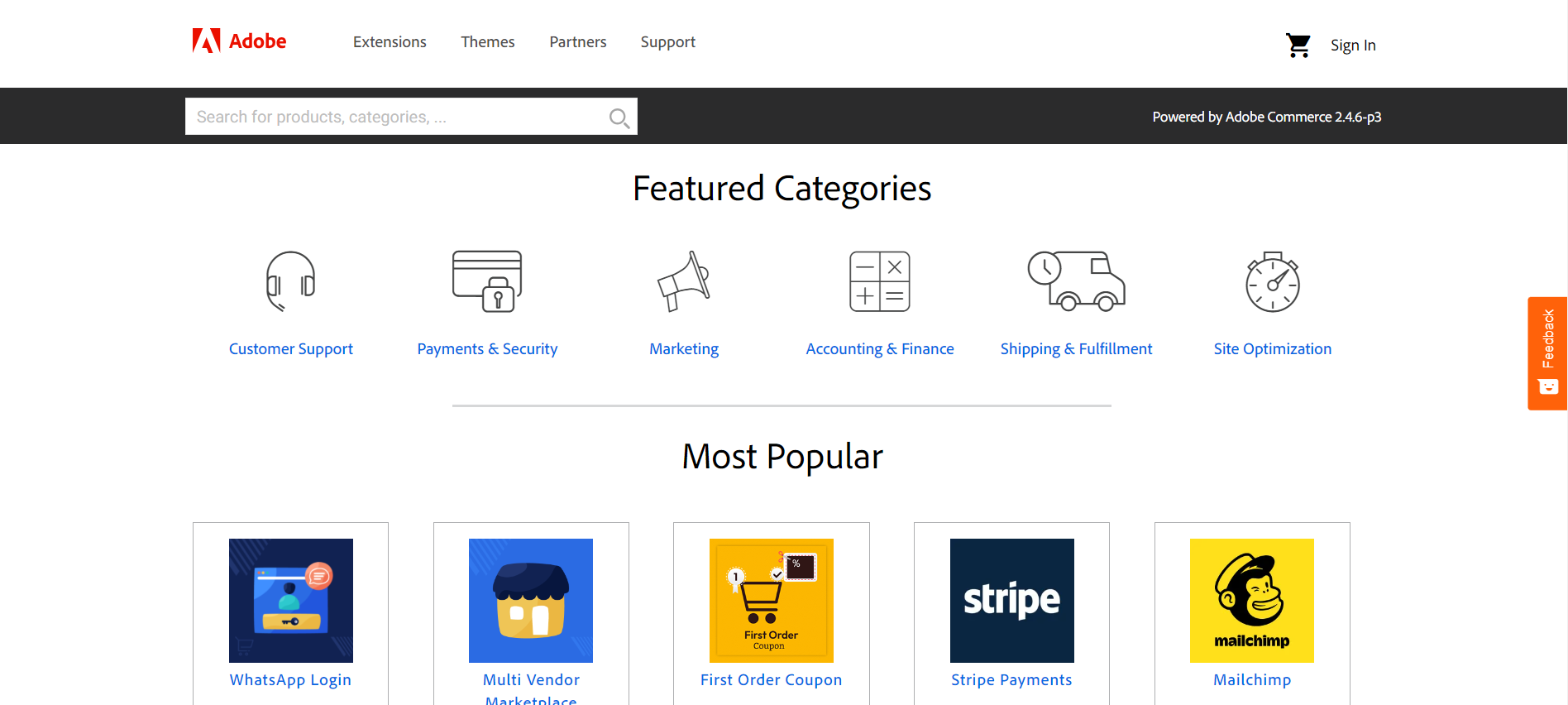
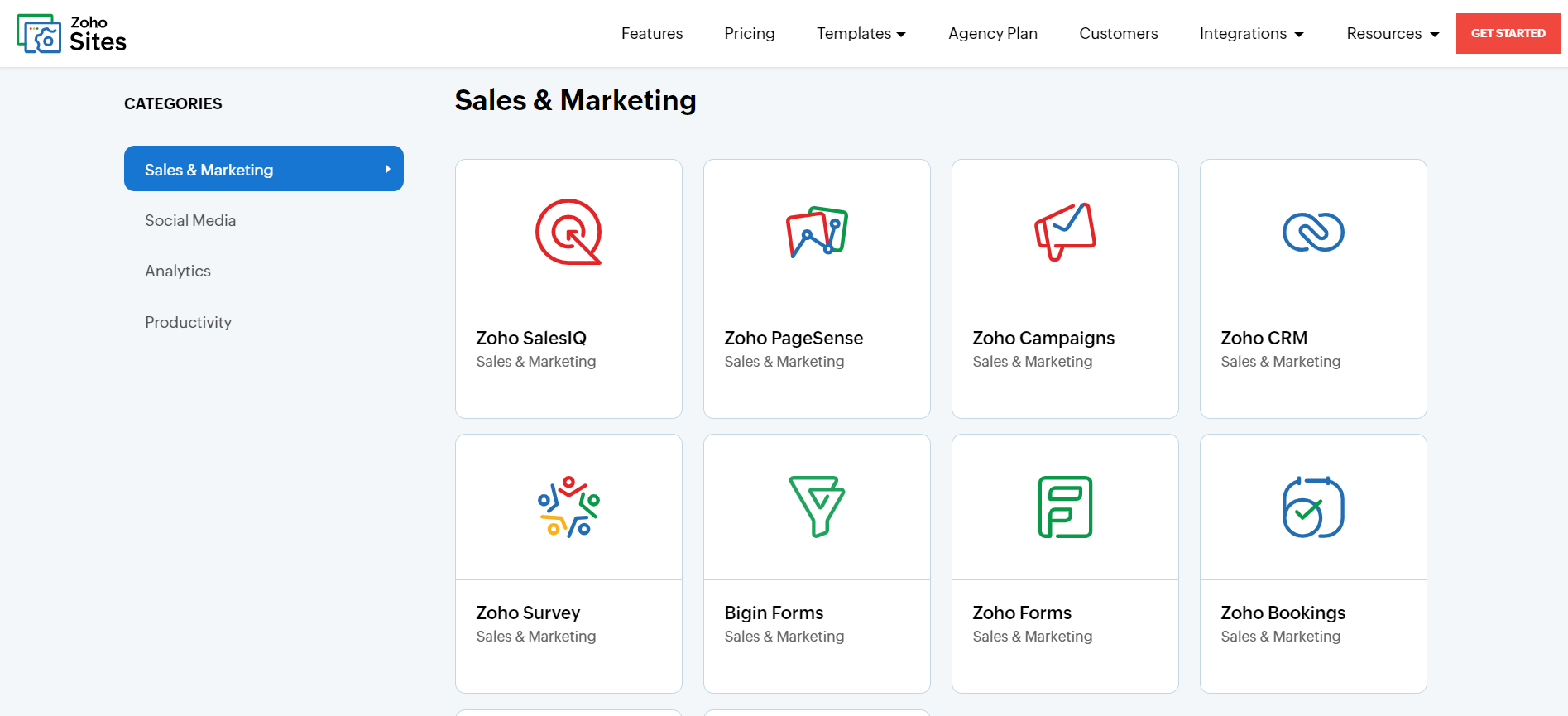
Marketing Features
Design FunctionalitiesRepresents how well each platform allows for creative design and customization of websites.Score Components:
- Template Variety (30%): Range and quality of design templates.
- Customization (30%): Flexibility and options for design alterations.
- User Interface (20%): Ease and intuitiveness of the design process.
- Responsiveness (10%): Adaptability to different devices and screen sizes.
- Innovation (10%): Unique design features and tools.
 8.1
8.1
 7.6
7.6
🏆
Overall Winner: Adobe Commerce(ex Magento)
. Adobe Commerce (ex Magento) stands out for its more advanced marketing tools, especially in analytics and reporting, and ads and promotions. Zoho Sites also offers a range of marketing tools, but they are not as sophisticated as those offered by Adobe Commerce (ex Magento).

|

|
|
|---|---|---|
|
SEO Tools |
|
|
|
Email Marketing |
|
|
|
Blogging |
Can be integrated with platforms like WordPress for content marketing purposes. |
|
|
Social Media Integration |
|
|
|
Analytics and Reporting |
Adobe Commerce integrates with Google Analytics and other analytics tools, providing detailed insights into your ecommerce activities. |
Offers traffic analytics and supports Google Analytics integration for detailed insights. |
|
Ads and Promotions |
Advanced marketing tools for creating and managing promotions, coupons, and personalized content. |
Integrated with Zoho Marketing Automation for managing ads and promotions. |
Customer Support
Customer supportEvaluates the quality and availability of support options.Score Components:
- Response time (40%): Speed of support responses.
- Support quality (30%): Effectiveness and helpfulness of the support.
- Availability (20%): Range of support channels (phone, chat, email).
- Resource richness (10%): Quality of self-help and educational materials.
 8.3
8.3
 8.3
8.3
🏆 Winner: Tie
. When comparing Adobe Commerce(ex Magento) vs Zoho Sites, both platforms offer robust customer support, each scoring 8.3 in this category.
Adobe Commerce(ex Magento) provides 24/7 support through phone, email, and live chat, along with a comprehensive knowledge base and community forums. Their enterprise-level support includes dedicated account management and access to a global network of experts, ensuring businesses can maximize their ecommerce operations.
Zoho Sites also offers 24/7 support via live chat, email, and phone. They provide a detailed knowledge base and community forum for self-help and troubleshooting. For enterprises, Zoho Sites offers dedicated support to assist with technical issues and platform guidance, ensuring reliable and prompt assistance.
Both platforms excel in providing extensive support resources and availability, making them equally strong contenders in this category.
Security
SecurityLooks at the platforms’ security measures and data protection.Score Components:
- Data protection (40%): Safeguards for user and customer data.
- SSL and encryption (30%): Implementation of secure connections.
- Compliance (20%): Adherence to industry security standards.
- Regular updates (10%): Frequency of security updates and patches.
 8.4
8.4
 8.1
8.1
🏆
Winner: Adobe Commerce(ex Magento)
. Adobe Commerce (ex Magento) takes security seriously, providing secure private data storage and protection through advanced encryption and access control measures. Regular security updates and patches are provided to address vulnerabilities, and secure payment processing and encryption protect customer data. Tools for monitoring and detecting suspicious activity on the website are also provided.
Although it may not offer the same level of specialized ecommerce security features as Adobe Commerce (ex Magento), Zoho Sites also offers secure private data storage and protection, with data stored in highly secure data centers and regularly backed up. The platform uses SSL encryption to protect data transmission and offers two-factor authentication for added security. Regular software updates are provided to address potential vulnerabilities. However, Adobe Commerce (ex Magento) edges out Zoho Sites in terms of overall security score.
AI Capabilities
AI capabilitiesMeasures the effectiveness of AI-driven features and tools.Score Components:
- Automation efficiency (40%): Impact of AI on streamlining processes.
- Personalization (30%): AI-driven customization for users or customers.
- AI-Assisted design (20%): Role of AI in website design and functionality.
- Data analysis (10%): Use of AI in interpreting user data and analytics.
 7.7
7.7
 7.5
7.5

|

|
|
|---|---|---|
|
Personalized Design |
|
|
|
SEO Optimization |
AI-driven SEO optimization |
|
|
Customer Behavior Analysis |
AI-powered customer behavior analysis |
AI-powered customer behavior analysis |
|
Sales Predictions |
AI-powered sales forecasting tools |
AI-powered sales forecasting tools |
|
Inventory Management |
AI tools for efficient inventory management |
|
|
Content Generation |
AI-powered content generation and optimization |
AI-powered content generation and optimization |
🏆 Winner: Adobe Commerce (ex Magento)
. Adobe Commerce, with a score of 7.7, utilizes AI to enhance the ecommerce experience. Its AI features focus on personalized product recommendations, visual search capabilities, inventory management, price optimization, content creation, SEO optimization, customer service, security, and marketing.
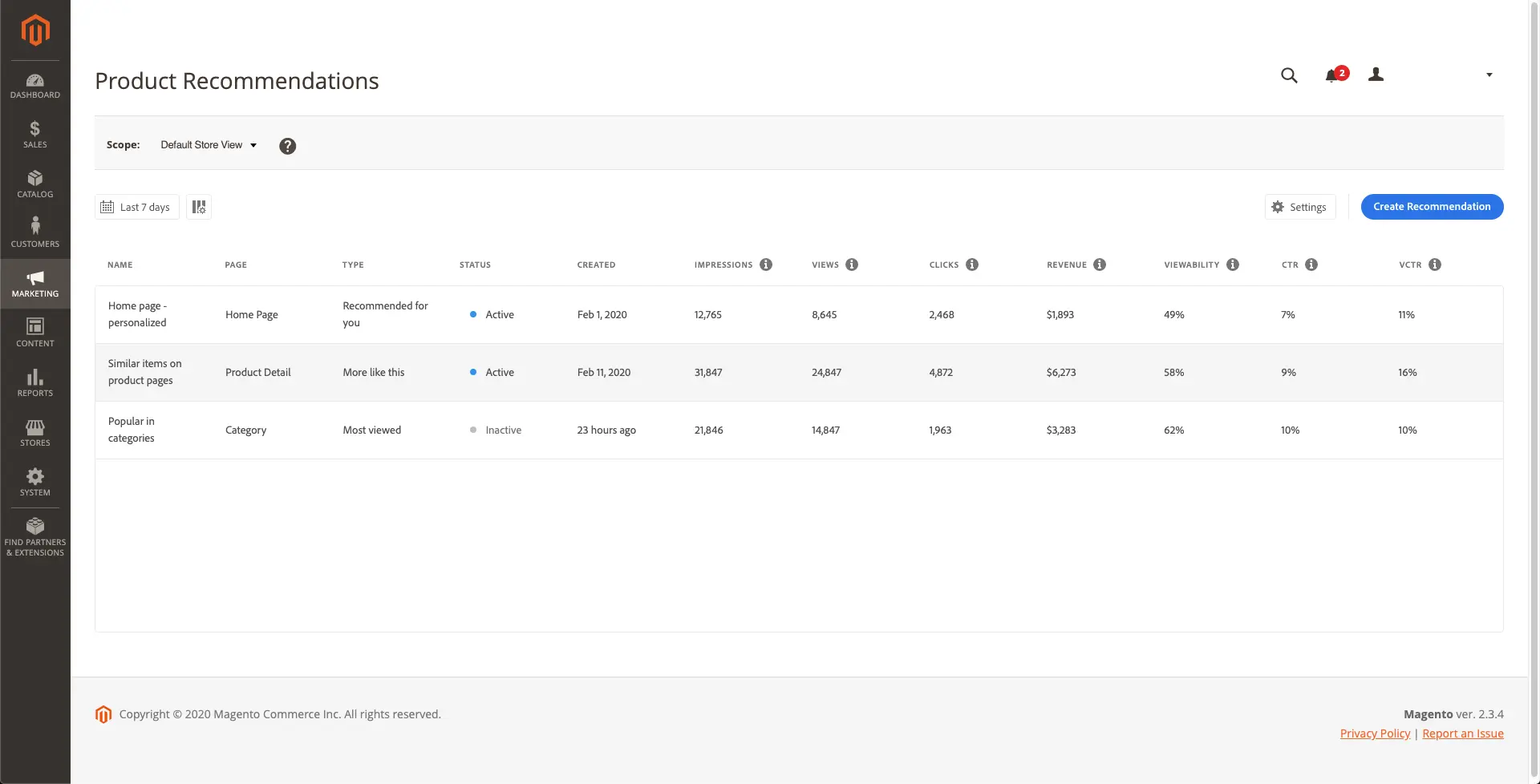
Zoho Sites, with a score of 7.5, also utilizes AI to enhance the ecommerce experience. Its AI features focus on personalized product recommendations, sales predictions, workflow automation, customer service enhancements, and content creation.
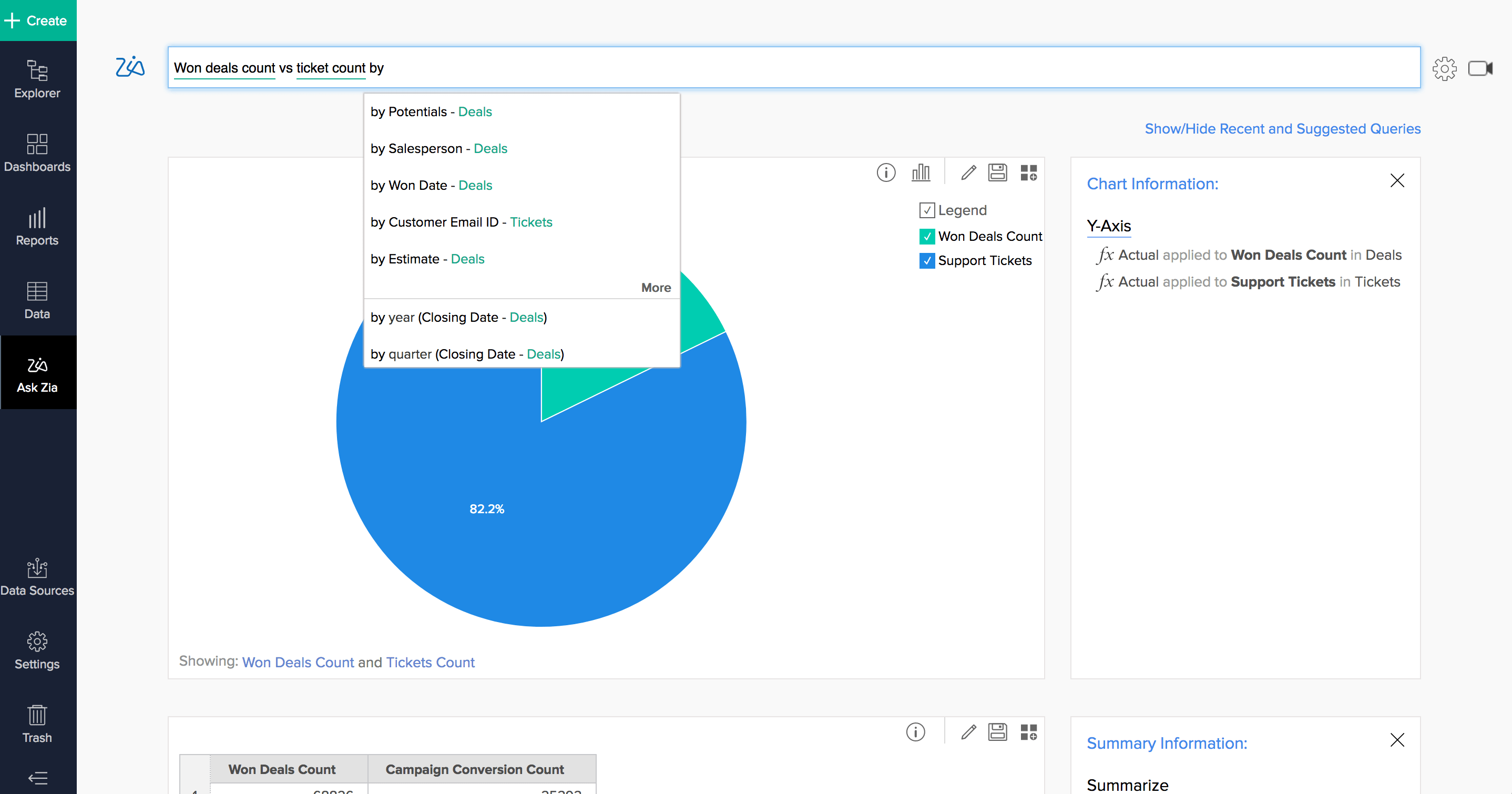
User Management
User ManagementAssesses the platforms’ capabilities in managing user roles, permissions, and accessibility.Score Components:
- Role Customization (40%): Flexibility in creating and defining user roles and
permissions. - Ease of Management (30%): User interface and tools for managing users.
- Access Control (20%): Effectiveness of access control measures for different user
levels. - Scalability (10%): Ability to manage a growing number of users efficiently.
 8.0
8.0
 7.3
7.3
🏆 Winner: Adobe Commerce(ex Magento)
. Both Adobe Commerce and Zoho Sites offer different approaches to user management.
- Adobe Commerce’s user management depends on user licenses and roles. User licenses, bought separately, determine the total number of users allowed, with additional licenses purchasable as needed. Roles and permissions, managed within the available licenses, control access and modifications, ensuring data security and efficient workflow.
- Zoho Sites’ user management and access levels depend on the chosen plan. The Free Plan allows only the owner to edit, while paid plans like Pro, Business, and Enterprise offer access for up to 10, 25, and 50 users respectively. Zoho Sites provides four access levels: Admin, with full editing rights and user management; Contributor, who can edit content and create pages but not manage collaborators; and Author, limited to editing text content without access to settings or user management.
Adobe Commerce(ex Magento) User Roles and Access Levels:
| Role | Description | Access Highlights |
|---|---|---|
| Administrator | Has full permissions to all aspects of Adobe Commerce, including global settings and data. | Full access to all settings, data, and functionalities within Adobe Commerce. Can manage other users’ roles and permissions. |
| Store Administrator | Responsible for the day-to-day management of the store, including products, orders, and customer service. | Access to manage products, process orders, and handle customer inquiries, but may have restricted access to sensitive global settings or data. |
| Design Team Member | Focuses on the aesthetic and user experience aspects of the store, working on content design and layout. | Access to content design tools and functionalities, but restricted from accessing customer, order information, and other sensitive areas. |
| Default User (B2B) | Has view-only access to company profile and credit information, and full access to activities related to sales and quotes. | Full access to sales and quotes activities; view-only for company profile and credit information. |
| Senior Buyer (B2B) | Engaged in purchasing, with access to all Sales and Quotes resources, and view-only permissions to the Company Profile, User and Teams, Payment Information, and Company Credit. | Comprehensive access to Sales and Quotes, with limited viewing rights for company’s financial and profile data. |
| Assistant Buyer (B2B) | Assists in purchasing activities, with permissions to place orders using Checkout with Quote, and to view orders, quotes, and company profile information. | Permission to execute orders and access relevant purchasing data; view-only access to company profile information. |
Additional Features

|

|
|
|---|---|---|
|
SSL Certificate |
|
|
|
Custom Domain |
|
|
|
Free Custom Domain Included |
|
|
|
International Domains |
|
|
|
Mobile Responsive |
|
|
|
Page Speed |
|
|
|
Website Builder Mobile App |
|
|
|
Convert a Website To An App |
|
|
|
Website Analytics |
|
|
|
Multilingual Sites |
|
|
|
Multiple Users |
|
|
User Feedback
Adobe Commerce (formerly Magento Commerce) receives high praise for its comprehensive ecommerce solutions, offering features like customer and order management, scalability, and customization options. Users appreciate its flexibility and ease of use, although some mention a learning curve due to its extensive features. Despite occasional drawbacks like slow speed or complexity, Adobe Commerce proves beneficial for businesses seeking robust ecommerce platforms, aiding in sales growth, customer management, and overall efficiency in managing online stores.
Zoho Sites receives mixed reviews, with users praising its user-friendly interface, extensive template library, and seamless integration with other Zoho products, which simplifies website development and management for small businesses. However, some users express dissatisfaction with its limited design flexibility and the inability to create custom features. Overall, Zoho Sites addresses the need for cost-effective website solutions, particularly for those without coding knowledge, offering a one-stop-shop for building and managing websites with varying degrees of customization and integration with other business tools.
The making of this blog
We followed a clear, step-by-step process to write and research this article.
FAQ
Which platform is better for large-scale ecommerce, Adobe Commerce (ex Magento) or Zoho Sites?
Can I use Zoho Sites for creating an informational website?
How do Adobe Commerce (ex Magento) and Zoho Sites compare in terms of user-friendliness?
Which platform offers better website speed optimization?
How do the platforms compare in terms of customer support?
Which platform has stronger security features?
Are there any significant differences in the pricing plans of Adobe Commerce (ex Magento) and Zoho Sites?










